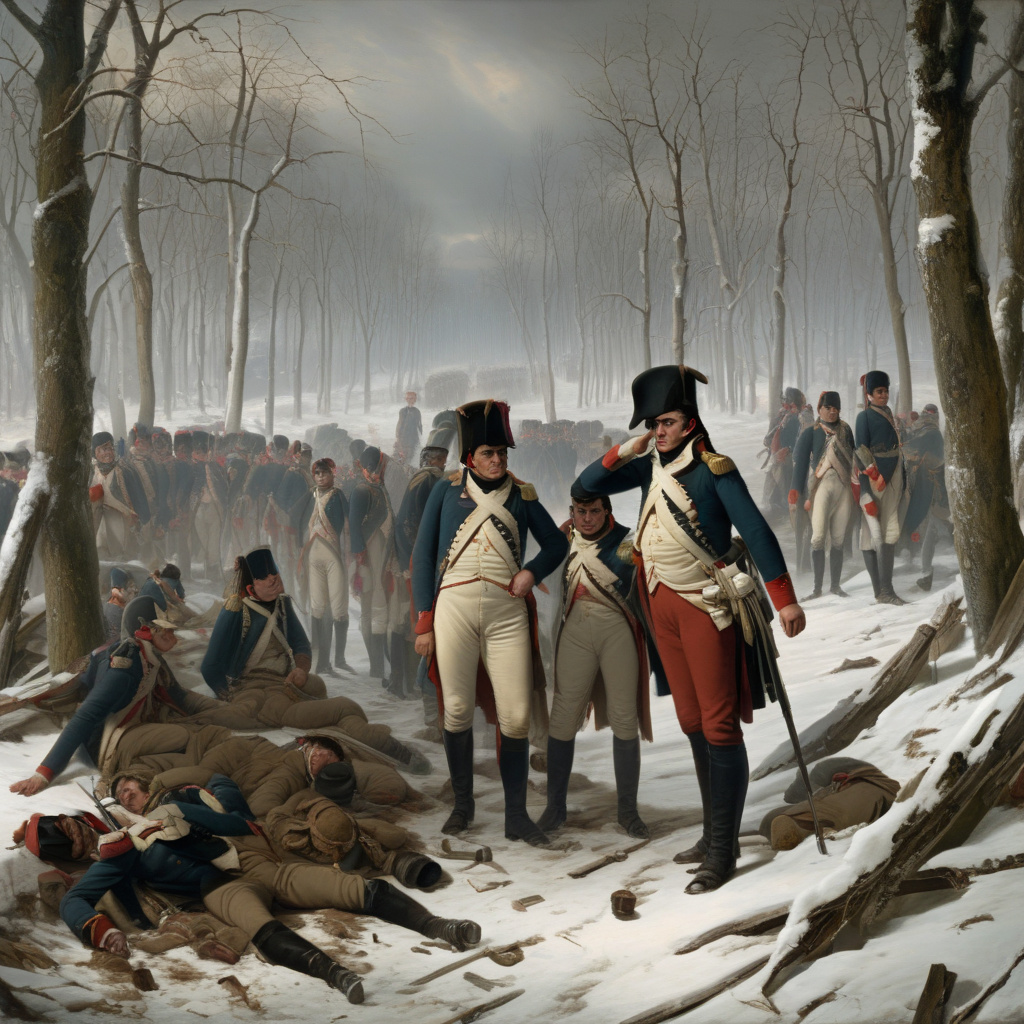The Mysterious Illness That Plagued Napoleon’s Soldiers During the Retreat from Russia
During Napoleon’s disastrous retreat from Russia in the bitter cold, his army of 600,000 men faced not only the harsh winter conditions but also a mysterious illness that would further decimate their ranks. Historians have long debated what caused the sudden and severe sickness that afflicted the soldiers, leading to speculation and theories ranging from infectious diseases to nutritional deficiencies.
Recent research and analysis of historical records have shed light on the true nature of the illness that played a significant role in the downfall of Napoleon’s Grand Army. It has been revealed that the mystery illness that swept through the ranks was none other than typhus, a highly contagious bacterial infection spread by lice.
Typhus, also known as “jail fever” or “camp fever,” thrives in crowded and unsanitary conditions, making it the perfect breeding ground within the close quarters of the military camps and bivouacs where Napoleon’s soldiers were stationed during the grueling retreat from Russia. The freezing temperatures only exacerbated the situation, as the soldiers huddled together for warmth, providing an ideal environment for the lice to spread the deadly disease.
The symptoms of typhus are debilitating, including high fever, headache, rash, and extreme weakness. Without access to proper medical care or adequate supplies, the soldiers were left vulnerable to the ravages of the illness. As the infection spread rapidly through the ranks, morale plummeted, further weakening an already exhausted and demoralized army.
The discovery of typhus as the culprit behind the mass illness that struck Napoleon’s soldiers offers a new perspective on the events that unfolded during the fateful retreat from Russia. It highlights the devastating impact that infectious diseases can have on military campaigns, shaping the course of history in unforeseen ways.
Moreover, the revelation underscores the importance of sanitation, hygiene, and disease prevention measures in preventing outbreaks within large groups of people. Lessons learned from the past can inform current practices in public health and disaster response, emphasizing the critical need for vigilance and preparedness in the face of potential health crises.
As we reflect on the tragic fate of Napoleon’s soldiers and the role that typhus played in their downfall, we are reminded of the fragility of human life and the power of infectious diseases to wield influence on the grandest of scales. The mystery illness that once confounded historians has now been unraveled, revealing a tale of suffering, resilience, and the enduring impact of health on the course of history.
#Napoleon #Typhus #MilitaryHistory #HealthCrisis #HistoricalDiscovery












